Gardeners Bulls Cross: Cultivating Green Spaces in Hertfordshire
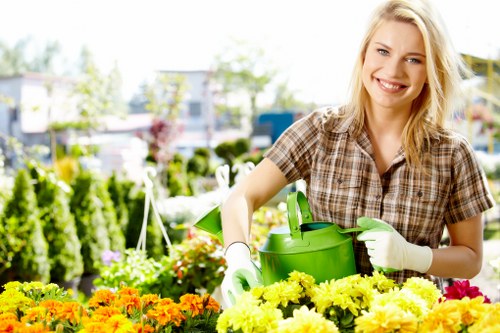
Welcome to the comprehensive guide on Gardeners Bulls Cross, your go-to resource for gardening enthusiasts in the Bulls Cross area. Whether you're a seasoned gardener or just starting out, this article provides valuable insights into maintaining beautiful gardens, selecting the right plants, and making the most of your outdoor space.
Bulls Cross, nestled in Hertfordshire, offers a unique climate and soil conditions that are ideal for a variety of plants. Understanding these local factors is essential for successful gardening.
In this guide, we'll explore the best gardening practices tailored to Bulls Cross, highlight nearby areas with unique gardening opportunities, and answer some frequently asked questions to help you cultivate your green thumb.
Understanding the Bulls Cross Climate
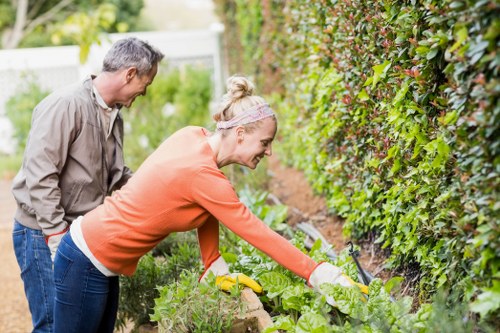
The climate in Bulls Cross is classified as temperate, with mild summers and cool winters. This means gardeners have a wide range of plants to choose from, including perennials, annuals, and vegetables that thrive in these conditions.
Key factors to consider include:
- Temperature: Average temperatures range from 5°C in winter to 25°C in summer.
- Rainfall: Bulls Cross receives moderate rainfall, making it suitable for moisture-loving plants.
- Sunlight: Most areas receive ample sunlight, ideal for sun-loving varieties.
By understanding these climate aspects, gardeners can select plants that are well-suited to the local environment, reducing the need for excessive watering or protection from the elements.
Soil Conditions in Bulls Cross
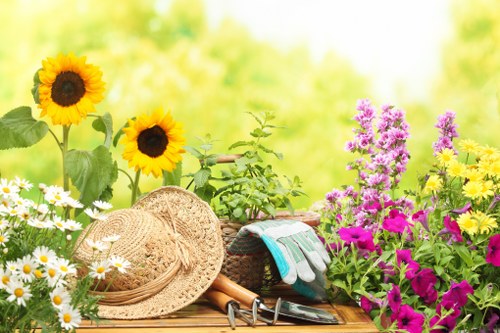
The soil in Bulls Cross is predominantly clayey, which retains nutrients and moisture effectively. However, clay soil can become compacted, making it difficult for plant roots to penetrate.
To improve soil quality, gardeners should consider the following steps:
- Amending the Soil: Incorporate organic matter like compost or well-rotted manure to enhance soil structure.
- Proper Drainage: Ensure that garden beds have adequate drainage to prevent waterlogging.
- pH Levels: Test soil pH and adjust as necessary to suit the specific plants being cultivated.
By addressing soil challenges, gardeners in Bulls Cross can create a thriving environment for their plants.
Top Plants for Bulls Cross Gardens
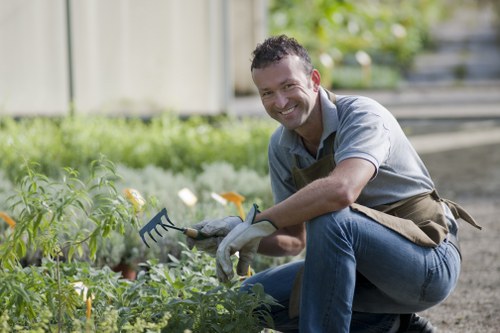
Choosing the right plants is crucial for a successful garden. Here are some top recommendations suited to the Bulls Cross climate and soil:
Perennials
- Lavender: Thrives in full sun and well-drained soil.
- Hostas: Ideal for shaded areas with rich, moist soil.
- Daylilies: Low-maintenance and adaptable to various soil types.
Vegetables
- Tomatoes: Require plenty of sunlight and support for growth.
- Leafy Greens: Such as spinach and kale, which grow well in cooler temperatures.
- Peppers: Prefer warm conditions and well-drained soil.
Annuals
- Pansies: Provide vibrant colors and can withstand cooler temperatures.
- Zinnias: Bright blooms that flourish in sunny spots.
- Marigolds: Excellent for pest control and add a pop of color.
Seasonal Gardening Tips
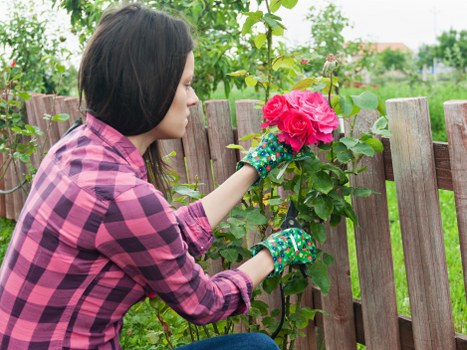
Gardening in Bulls Cross requires attention to seasonal changes to ensure year-round beauty and productivity.
Spring
- Start planting early vegetables like peas and lettuce.
- Prepare garden beds by clearing debris and adding compost.
- Prune shrubs and trees to encourage healthy growth.
Summer
- Monitor water usage to prevent drought stress.
- Control pests with natural remedies.
- Harvest vegetables regularly to promote continued production.
Autumn
- Plant bulbs for spring blooms.
- Leaf mulch to enrich the soil.
- Protect sensitive plants from early frosts.
Winter
- Plan for the upcoming gardening season.
- Prune hardy plants to maintain shape.
- Protect perennial beds from extreme cold.
Gardening Resources in Bulls Cross
Access to local resources can greatly enhance your gardening experience in Bulls Cross. Here are some valuable resources:
- Bulls Cross Community Garden: A shared space for gardeners to collaborate and share tips.
- Local Nurseries: Offering a diverse selection of plants suited to the Bulls Cross environment.
- Gardening Workshops: Regularly held to educate and inspire gardeners of all levels.
- Online Forums: Connect with other local gardeners to exchange advice and experiences.
Nearby Areas with Unique Gardening Opportunities
Exploring nearby areas can provide additional gardening inspiration and opportunities. Here are some noteworthy locations:
- Hatfield: Known for its expansive parks and botanical gardens.
- Welwyn Garden City: Offers numerous community gardens and green spaces.
- Stevenage: Features specialized nurseries and gardening centers.
- Hitchin: Renowned for its annual flower shows and garden tours.
- Harpenden: Home to beautifully maintained private gardens open to the public.
- St Albans: Offers historical gardens and themed planting schemes.
- Broxbourne: Features riverside gardens and nature reserves.
- Cheshunt: Known for its urban gardening initiatives and community projects.
- Waltham Cross: Hosts seasonal markets with local plant vendors.
- Petersfield: Offers unique rock gardens and hardy plant varieties.
- North Mymms: Known for its ornamental gardens and landscaping services.
- Wheathampstead: Features traditional English gardens and heritage plantings.
- Markyate: Offers flower festivals and community planting days.
- Radlett: Home to diverse plant species and conservation gardens.
Common Gardening Challenges in Bulls Cross
Every gardener faces challenges, and Bulls Cross is no exception. Here are some common issues and how to address them:
Pest Control
- Identification: Regularly inspect plants to identify pests early.
- Natural Remedies: Use neem oil or insecticidal soap to manage infestations.
- Prevention: Maintain plant health to reduce vulnerability to pests.
Soil Health
- Testing: Conduct soil tests to determine nutrient levels and pH.
- Amendments: Add compost or other organic matter to improve soil structure.
- Crop Rotation: Rotate plant species to prevent soil depletion.
Water Management
- Irrigation: Install drip irrigation systems to conserve water.
- Mulching: Apply mulch to retain soil moisture and reduce evaporation.
- Rainwater Harvesting: Collect and store rainwater for garden use.
Enhancing Your Garden's Aesthetics
Creating a visually appealing garden involves more than just planting the right species. Consider the following elements to enhance your garden's beauty:
Garden Layout
- Pathways: Design clear paths for easy navigation.
- Plant Grouping: Arrange plants in groups based on size and color.
- Focal Points: Incorporate features like fountains, statues, or benches.
Color Schemes
- Complementary Colors: Use colors opposite each other on the color wheel for contrast.
- Monochromatic Schemes: Utilize varying shades of a single color for a harmonious look.
- Seasonal Colors: Choose plants that bloom in different seasons to maintain year-round interest.
Lighting
- Pathway Lights: Illuminate paths for safety and ambiance.
- Spotlights: Highlight specific plants or garden features.
- Solar Lights: Eco-friendly options that don't require wiring.
Sustainable Gardening Practices
Adopting sustainable practices not only benefits your garden but also the environment. Here are some sustainable gardening tips:
Composting
- Reduce Waste: Turn kitchen scraps and garden waste into nutrient-rich compost.
- Nutrient-Rich Soil: Use compost to naturally enhance soil fertility.
- Cost-Effective: Save money on fertilizers by making your own compost.
Rainwater Harvesting
- Water Conservation: Collect rainwater to use during dry spells.
- Environmental Impact: Reduce reliance on municipal water supplies.
- Installation: Set up rain barrels or other collection systems easily.
Native Plants
- Low Maintenance: Native plants are adapted to the local climate and require less care.
- Support Local Wildlife: Provide habitat and food for native insects and birds.
- Biodiversity: Enhance the ecological diversity of your garden.
Community and Networking
Engaging with the local gardening community can enhance your gardening experience:
- Gardening Clubs: Join local clubs to share knowledge and participate in events.
- Workshops and Seminars: Attend educational sessions to learn new techniques.
- Online Groups: Connect with fellow gardeners through social media and forums.
- Community Projects: Participate in local green initiatives and beautification projects.
Conclusion
Gardening in Bulls Cross offers a rewarding experience for those passionate about cultivating green spaces. By understanding the local climate, soil conditions, and selecting the right plants, you can create a thriving garden. Utilize the resources and embrace sustainable practices to ensure your garden remains beautiful and environmentally friendly. Don’t forget to connect with nearby areas and the local gardening community to continuously enhance your gardening journey.
Frequently Asked Questions
1. What are the best plants for beginners in Bulls Cross?
Some of the best plants for beginners include Lavender, Hostas, and Daylilies. These plants are hardy and require minimal maintenance, making them ideal for those new to gardening.
2. How can I improve clay soil in my garden?
To improve clay soil, incorporate organic matter such as compost or well-rotted manure. This helps to enhance soil structure, increase drainage, and provide essential nutrients for plant growth.
3. What sustainable practices can I adopt in my Bull Cross garden?
Adopt practices like composting, rainwater harvesting, and planting native species. These methods help conserve resources, reduce waste, and support local biodiversity.
4. Are there local gardening groups in Bulls Cross?
Yes, Bulls Cross has several community gardening groups and clubs where enthusiasts can share knowledge, participate in events, and collaborate on gardening projects.
5. How often should I water my garden in Bulls Cross?
The watering frequency depends on the plant types and the season. Generally, most gardens benefit from deep watering once or twice a week, ensuring that the soil remains moist but not waterlogged.


